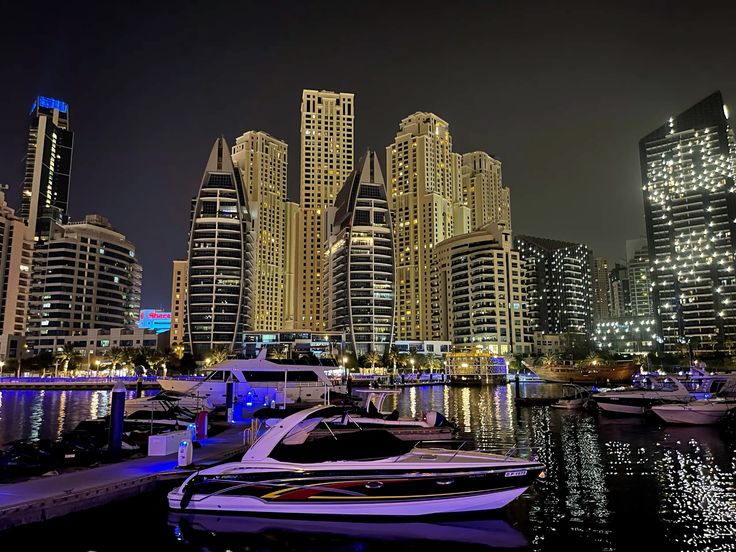8 Steps to Easily Understand Property Transfer Fees in Dubai
Dubai is one of the most attractive cities in the world for real estate investment, offering a stable economic environment and a thriving property market. When buying or selling a property in Dubai, it is essential to understand property transfer fees, which are a key part of the process. In this article, we will explain everything you need to know about property transfer fees in Dubai, from definitions to procedures and steps, as well as answer common questions that investors may have.
What are Property Transfer Fees in Dubai?
Property transfer fees in Dubai are the costs paid by the buyer and seller during the process of transferring property ownership from one party to another. These fees are determined by the Dubai Land Department (DLD), the official authority responsible for property registration and real estate transactions.
Property transfer fees are an important factor to consider before investing in Dubai’s property market, as they directly impact the overall budget of the investor.
The Importance of Understanding Property Transfer Fees in Dubai
Understanding property transfer fees helps you:
- Plan Your Finances Accurately: Knowing the fees allows you to set your budget correctly.
- Avoid Unexpected Costs: It helps you prevent any unforeseen additional expenses.
- Ensure Transparency in Transactions: Understanding the fees and procedures makes you more aware of your rights and responsibilities.
- Make Better Investment Decisions: Knowledge helps you compare property deals more effectively.

8 Steps to Easily Understand Property Transfer Fees in Dubai
Property transfer fees in Dubai are a key part of the process of buying or selling real estate and may seem somewhat complex for new investors. In this section, we will outline each of the eight steps in detail to ensure a comprehensive and clear understanding of these fees and how to handle them.
1. Identify the Authority Responsible for Property Transfer Fees
In Dubai, the official authority responsible for managing and regulating all real estate transactions, including property transfer fees, is the Dubai Land Department (DLD).
This authority plays a vital role in:
- Registering properties.
- Regulating the real estate market.
- Issuing property ownership certificates.
Why is this step important?
Because all fees related to property transfers are paid directly to the Dubai Land Department or through its approved service centers, such as the Real Estate Registration Trustee Centers. Therefore, it’s crucial to know where to go to complete the transaction.
2. Understand the Percentage of Property Transfer Fees
Property transfer fees in Dubai amount to 4% of the property value, a fixed percentage based on the sale price or the property’s market value, whichever is higher.
In most cases, the buyer bears these fees entirely unless the buyer and seller agree to split them.
How are the fees calculated?
If the property price is AED 1,000,000, the transfer fees will be:
1,000,000 × 4% = 40,000 AED
These fees are paid when the property is registered in the name of the new buyer.
Why is this step important?
Because knowing the exact percentage helps you plan your finances in advance and avoid surprises.
Exceptions:
In special cases, such as transferring ownership between family members, fees may be reduced or entirely waived.
3. Be Aware of Additional Fees Alongside the Transfer Fees
In addition to the main transfer fee (4%), there are additional fees to consider, including:
- Property Registration Fee: Approximately AED 580, which includes issuing the ownership certificate.
- Ownership Certificate Issuance Fee: Paid to obtain the official document proving property ownership.
- Real Estate Agency Fee: Usually 2% of the property value, paid to the real estate agent assisting with the transaction.
- Notary Fees: Paid if contracts require official notarization.
Why is this step important?
Because additional fees can increase the overall transaction cost, so you need to be prepared for them.
4. Ensure Accurate Property Valuation
Property transfer fees are calculated based on the market value of the property or the sale price recorded in the contract, whichever is higher. Therefore, it’s important to ensure the property is accurately valued.
How is the valuation done?
- The Dubai Land Department can conduct the valuation through its experts.
- You can also hire an independent, certified valuation company for an external assessment.
Why is this step important?
- To ensure the fees are calculated fairly.
- To avoid paying higher fees due to overvaluation.
Tip:
Request a written valuation report and keep it for future reference.
5. Understand the Payment Method
Property transfer fees are typically paid via:
- A manager’s cheque addressed to the Dubai Land Department.
- Cash payment at the service center.
Why is this step important?
Ensuring the correct payment method will help you complete the transaction smoothly without delays.
Tip:
Always obtain an official receipt as proof of payment.
6. Know When to Pay
Property transfer fees are paid at the property registration stage. This step occurs after the final contracts are signed between the buyer and the seller and before the ownership certificate is issued.
What happens if payment is delayed?
- The property will not be registered in your name until the fees are fully paid.
- You may face fines or additional delays.
Why is this step important?
Because adhering to the payment schedule protects you from delays in registering the property or potential legal issues.
7. Consult a Real Estate Lawyer or Advisor
Seeking the help of a lawyer or real estate advisor can provide significant benefits, including:
- Ensuring all legal documents are complete and accurate.
- Verifying the fee calculations.
- Offering advice on how to reduce costs.
Why is this step important?
Because legal and real estate expertise can protect you from costly mistakes or delays in the process.
8. Know About Exemptions and Special Cases
In some situations, exemptions or reductions in property transfer fees may apply. These include:
- Transfers between immediate family members: Such as parents and children, where fees may be reduced or completely waived.
- Certain approved real estate projects: Some developers offer special promotions that include reduced transfer fees.
Why is this step important?
Because knowing about these exemptions can help you save significantly on costs.
Additional Tips to Easily Understand Property Transfer Fees
- Visit the official Dubai Land Department website for the latest information.
- Review all property-related documents before completing the transaction.
- If you are an international investor, hire a local lawyer to avoid complications.
- Make sure to register the property as soon as possible to avoid legal disputes.

Understanding Property Transfer Fees in Dubai Requires Full Awareness of All Details and Procedures
By following the eight steps mentioned above, you can ensure a smooth and hassle-free experience. If you are planning to invest in Dubai’s thriving real estate market, proper planning and a clear understanding of fees and procedures are the keys to success.
Top FAQs About Property Transfer Fees in Dubai
Below is a comprehensive list of the most common questions buyers and investors have about property transfer fees in Dubai, along with detailed answers explaining every aspect of the topic.
1. Who Pays the Property Transfer Fees in Dubai?
Typically, the buyer bears the full property transfer fees. However, the buyer and seller may agree to split the fees as per the contract terms. In most cases, the buyer covers the larger portion, while the seller is responsible for other fees such as the No Objection Certificate (NOC) or bank-related costs in case of a mortgage.
2. Are Property Transfer Fees Fixed for All Properties?
Yes, property transfer fees are fixed at 4% of the property value, regardless of whether the property is a flat, villa, plot, or commercial property. However, additional fees, such as land registration fees or agency fees, may vary based on the property type.
3. How Are Property Transfer Fees Calculated?
The transfer fees are calculated based on the property value recorded in the contract or the market value, whichever is higher.
For example:
If the property value in the contract is AED 1,500,000, the transfer fees will be:
1,500,000 × 4% = AED 60,000
4. Do Transfer Fees Differ Between Local and International Investors?
No, the property transfer fees in Dubai are fixed for all buyers, whether UAE nationals, residents, or international investors.
5. Do Transfer Fees Include Additional Services?
The 4% transfer fee does not cover additional services. Buyers must pay separate fees such as:
- Property Registration Fees
- Ownership Certificate Issuance Fees
- Real Estate Agency Fees (usually 2%)
- No Objection Certificate (NOC) Fees
6. What is the No Objection Certificate (NOC)?
The NOC is a document issued by the developer or property management company to confirm that no outstanding dues are linked to the property. It is essential for completing the property transfer process.
- The cost of an NOC ranges between AED 500 and AED 5,000, depending on the developer.
7. How Long Does it Take to Issue the Ownership Certificate?
Once the transfer fees are paid and all required documents are submitted, the ownership certificate is typically issued within 1 to 3 business days.
8. What Documents Are Required to Complete the Transfer Process?
To complete the property transfer, you will need:
- A signed sale and purchase agreement (SPA) between the buyer and seller.
- A copy of the passport or Emirates ID for both parties.
- The No Objection Certificate (NOC) from the developer.
- The original property ownership certificate.
- A manager’s cheque for the transfer fees.
9. Can Transfer Fees Be Paid in Installments?
Property transfer fees are usually paid in full at the time of registration. However, in rare cases, developers may offer installment plans for the fees as part of promotional offers.
10. Are There Additional Fees for Mortgaged Properties?
Yes, if the property is mortgaged, the seller must first clear the mortgage before transferring ownership. This includes paying the bank’s outstanding dues and additional fees for removing the mortgage, which increases the overall cost.
11. Can Transfer Fees Be Refunded if the Deal is Canceled?
Transfer fees are generally non-refundable once paid. However, in rare cases, such as canceling the deal before it is officially registered with the Dubai Land Department, a formal request can be submitted to seek a refund.
12. Do Transfer Fees Include Insurance?
No, property transfer fees do not include any insurance. If you require insurance (e.g., fire or natural disaster coverage), you need to pay additional fees to an insurance provider.
13. How Are Transfer Fees Paid?
Transfer fees are typically paid via a manager’s cheque addressed to the Dubai Land Department. This cheque must be submitted during the property registration process.
14. What Happens if Transfer Fee Payment is Delayed?
If the buyer delays paying the transfer fees, the property will not be registered in their name until the fees are fully paid. Additionally, fines or delays in issuing the ownership certificate may occur.
15. Are There Any Exemptions from Property Transfer Fees?
Yes, there are some cases where exemptions or reductions apply, such as:
- Transfers between immediate family members (e.g., parents and children).
- Properties granted as gifts or donations.
16. Are Transfer Fees Applicable to Off-Plan Properties?
Yes, transfer fees also apply to off-plan properties. However, additional charges like NOC fees or registration fees may vary depending on the project and developer.
17. Do Transfer Fees Differ Between Free Zones and Regular Areas?
The 4% transfer fee is fixed regardless of the property’s location, whether in a free zone or a regular area. However, additional charges in free zones may apply due to specific registration requirements.
18. What Happens If There is a Legal Dispute Over the Property?
In case of a legal dispute over the property, the transfer process will be suspended until the dispute is resolved. You may need to approach the Dubai property courts to address the issue.
19. Do Transfer Fees Differ for Residential and Commercial Properties?
The 4% transfer fee applies equally to all property types, whether residential or commercial. However, additional fees may vary depending on the type and use of the property.
20. Are There Discounts on Property Transfer Fees?
Some developers may offer discounts on transfer fees as part of promotional campaigns. For example, they may cover the transfer fees entirely to attract potential buyers.
21. Can Transfer Fees Be Paid Online?
Yes, the Dubai Land Department provides electronic services that allow transfer fees to be paid online through approved digital platforms.
22. Are Transfer Fees Applicable to Auctioned Properties?
Yes, transfer fees apply to auctioned properties. However, additional fees related to the auction process may also apply and are determined by the organizing authority.




